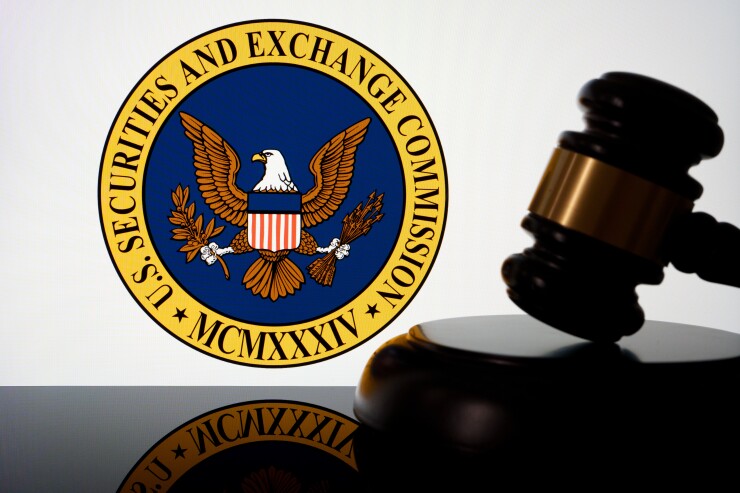The Securities and Exchange Commission announced Wednesday that it had reached a $325,000 settlement with Memphis-based First Horizon Advisors over allegations that it had failed to look out for clients' best interests following its parent company's purchase of IberiaBank Corp. in 2020. As part of the deal
And there's where the trouble began, according to the SEC. The SEC says First Horizon had systems in place to make sure its advisors were looking out for their clients' best interests when they were recommending complex investments known as structured notes.
READ MORE:
According to the SEC, First Horizon knew that technological problems were preventing certain types of client information held at Iberia from being imported properly. Among the untransferred data were customer profiles from 5,442 brokerage accounts.
Also missing was information on how much of clients' current portfolios had been allocated to different types of investments. Both sorts of data are commonly used by advisors to gauge whether certain assets like structured notes might serve a given investor's best interests.
The SEC alleges First Horizon went at least a year without having the required data for clients inherited from Iberia. That meant, according to regulators, that it couldn't have known if those customers' interests were truly served by any of the structured notes it recommended during that time.
The SEC specifically accused First Horizon of violating the conduct standard known as Regulation Best Interest, which calls on brokers to do what's best for their clients and disclose conflicts.
"This action underscores that broker-dealers must ensure appropriate compliance around complex financial products and that it is not enough to simply have written policies; firms must also enforce them," Osman Nawaz, the chief of the SEC Enforcement Division's complex financial instruments unit, said in a statement.
First Horizon neither admitted to nor denied the allegations. A spokesperson said the firm "is pleased to have resolved this matter. We cooperated with the SEC's investigation and have taken the appropriate steps to ensure full compliance with Regulation Best Interest going forward."
Compliance considerations
Jenice Malecki, a securities fraud attorney and the founder of
"This shows this was not a well-planned merger because there were a lot of compliance gaps," Malecki said. "They may think it's great all the accounts came over. But they also had a new expense that could have been avoided."
Malecki said the case also demonstrates that regulators are continuing to ramp up their enforcement of Regulation Best Interest, known as Reg BI for short. Even before the latest case against First Horizon, the Financial Industry Regulatory Authority and the SEC had brought at least 56 cases involving Reg BI since 2021, the first full year the rule was in effect.
The steady increase, Malecki said, shows regulators "have given people a chance to do things right, and now the sledgehammer is coming down."
From a C-plus to a D-minus
But Knut Rostad, the founder of the
When SEC regulators were contemplating adopting Reg BI, Rostad argued that anything short of a fiduciary standard for broker-dealers would not provide adequate protection to investors. Like many critics of Reg BI, Rostad said he's seen few instances in which the new rule can be deemed an improvement over the conduct standard it replaced.
That old standard, often called the suitability standard, merely called on broker-dealers to only recommend investments that are good fits for their clients. If suitability merited a "D-plus", Rostad said, then Reg BI perhaps deserves a "C-minus."
"That's maybe where we are on its best day," he said. "But when we're talking about a best interest standard, I don't think going up to a C-minus should impress anybody, frankly."
Other allegations
First Horizon's violations of Reg BI did not stop at failing to import customer profiles and portfolio information, according to the SEC. Regulators also alleged the firm failed to run the new accounts from Iberia through a system designed to raise red flags any time there was a structured note trade that didn't comply with internal Reg BI-related policies.
When one of those flags went up, internal compliance officers had to draw up what's known as an "exception report." Advisors would then have 60 days to bring the trade into compliance with Reg BI.
The SEC alleges that First Horizon learned in February 2021 that technological difficulties were preventing former Iberia advisors from accessing a site used to review exception reports. The said First Horizon did try to help the new representative meet their reporting and Reg BI-related obligations.
"Nonetheless, First Horizon continued with the operations integration without taking adequate steps to help ensure that the new First Horizon registered representatives cleared the exception reports within the required 60 days," according to the settlement.






